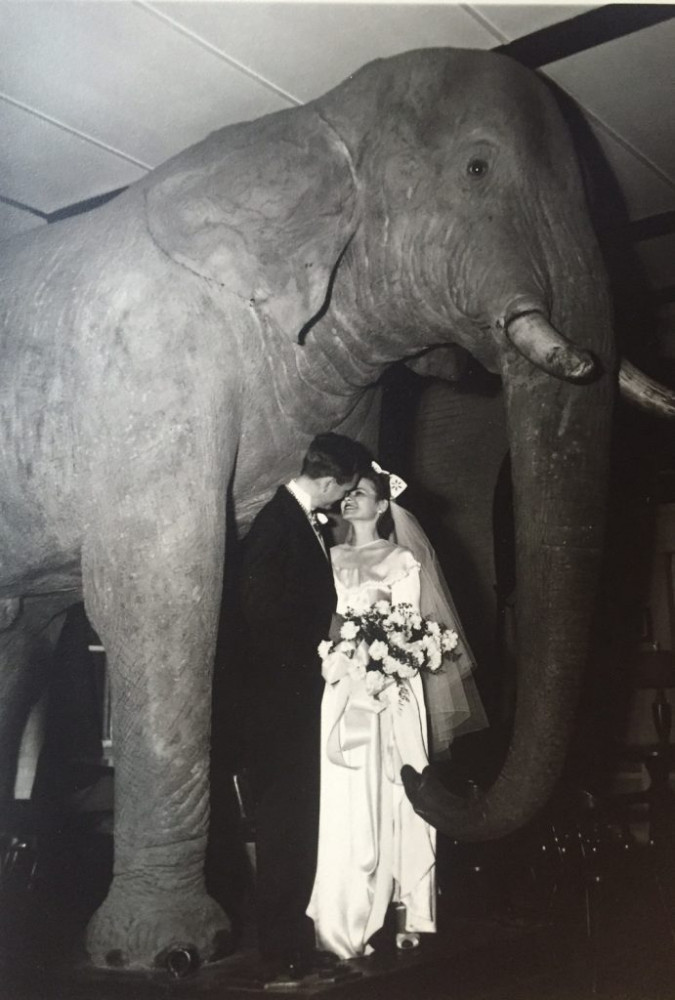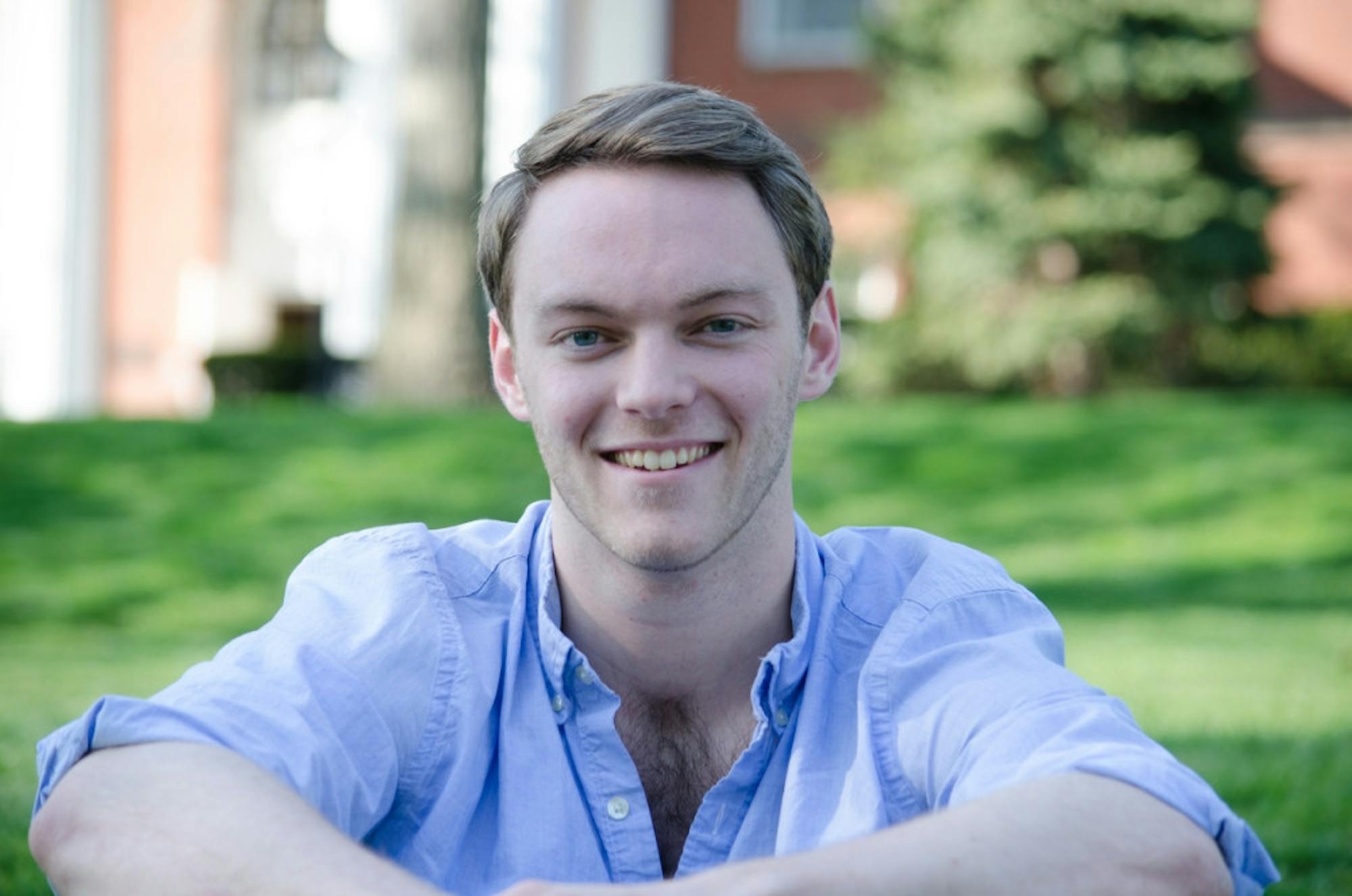Senior Henry Hooper Gleason was looking through old scrapbooks that his aunt found under hats and books in the back of a closet when he came across an article written about his grandmother, Elizabeth Gertrude Gleason. This article dubbed her the longest legacy student at Tufts, with 17 diplomas in her family.
Today, that title has been passed on to Henry Gleason, who is the 32nd person in his family to go to Tufts.
“I had always grown up with Tufts everywhere — sweatshirts, blankets, stuffed animals — so I knew that Tufts was in the family, and that my dad went to Tufts,” Gleason said. “When I thought of college I just thought of Tufts.”
The first member of Gleason's family to attend Tufts was William Leslie Hooper, who graduated from Tufts in 1877, served as interim president from 1912-1914 and founded the electrical engineering department. His name can be found on a plaque in Halligan Hall and within the frames of Health Service, which used to be Hooper House.
Gleason says he is also distantly related to Charles Tufts, who donated the land to create Tufts' Medford/Somerville campus in the 1840s.
Recounting Gleason's relatives’ experiences here is like hearing the version of Tufts history told on prospective student tours. There’s a picture of his grandparents in front of Bowen Gate before they got married at Goddard Chapel. His grandmother recalls swimming in the Mystic Reservoir — now the Residential Quad — his aunt remembers when the South Hall area used to just be open fields and Henry’s dad watched Barnum Hall burn down with the taxidermied Jumbo inside from his dorm room in Miller Hall.
When Gleason's relatives talk to him about school, their conversations are often about what’s happening to Tufts as the university continues to expand its spaces and transform its landscape. The new Jumbo statute, the Science and Engineering Complex that’s currently under construction and other changes are all part of what Gleason called Tufts trying to “beautify the campus” in a scramble to catch up with its increasingly exclusive national ranking.

Even when he was applying in 2012, Gleason's parents were surprised to see how rapidly Tufts was changing.
“My optional essay question was something like ‘Celebrate your nerdy side," Gleason said. “I showed my parents and they were like, ‘Wow, that’s strange.’ They were not expecting that Tufts had become such a politically correct, embrace-your-quirky-side place since my dad was here.”
As Tufts has transformed, several of Gleason's relatives' beloved traditions have faded. Gleason remembers a moment over Thanksgiving break during his first year of college when his great aunt came into the room singing a song from football games at Tufts.
“She started singing it to me expecting me to join in, but I was like, I don’t know what you’re doing there,” Gleason said.
His grandpa recounted to Gleason that when he was in college, he and his friends would wear tuxedos or coats with tails to parties, which Henry attributes to their social events being “a little more fancy and a little less racks-of-Natty-Light.”
Despite all of these changes, Tufts' history and Gleason's family history have long been intertwined. If it wasn’t for Professors Row, his mother, who lived in the Chi Omega sorority house, wouldn’t have met her husband, who lived in the Sigma Nu house next door. Gleason's father wouldn’t have become a judge for windsurfing at the Los Angeles Olympics in 1984 if WMFO hadn’t held a fundraiser — at which he won a windsurfing board — after a serious studio fire in 1977, and Gleason himself wouldn’t have developed what he describes as a deeper connection to his family if so many of his relatives hadn't gone to Tufts.
Henry hopes that someday, his future relatives will stumble across this article and want to continue their family’s Tufts legacy.






